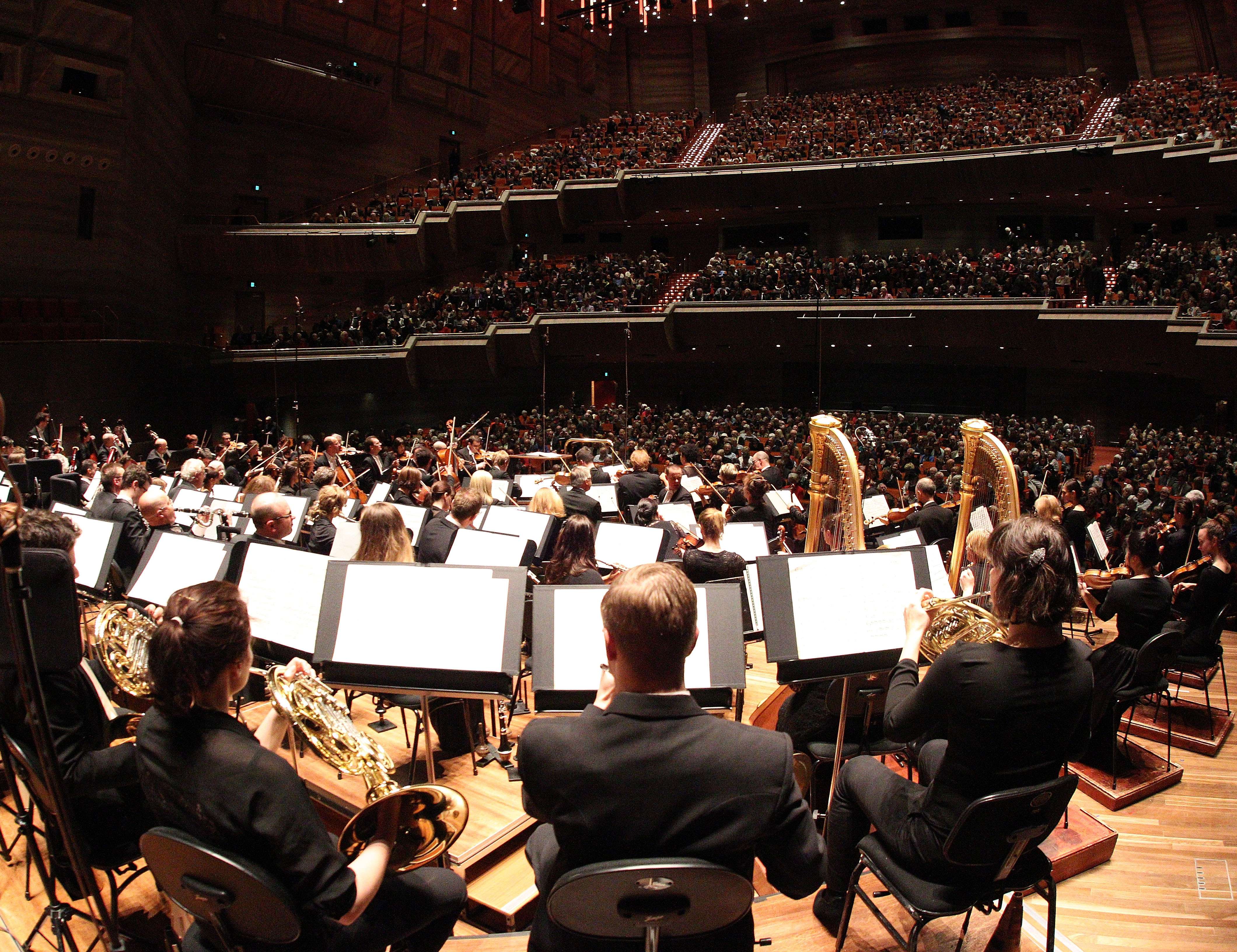|
Back
Wagner and the Orchestra Melbourne
Hamer Hall, Arts Centre Melbourne
10/19/2013 -
Richard Wagner: Tannhäuser: Overture – Götterdämmerung: Siegfried's Funeral Music & Immolation Scene – Die Meistersinger von Nürnberg: Dance of the Apprentices & Prelude to Act III – Parsifal: Prelude & Good Friday Music
Lisa Gasteen (soprano)
The Melbourne Symphony Orchestra, Asher Fisch (conductor) 
(© Lucas Dawson)
In October Melbourne hosts its International Festival of the Arts and as a part of this year’s festival it presents a musical debate encompassing a number of events: Brahms v Wagner. Featuring performances, lectures and interviews, this series explores the great rivalry between the two 19th Century giants. In the beautifully refurbished Arts Centre Hamer Hall a large audience waited eagerly to either answer their questions or fuel the debate.
This all-Wagner program by the MSO fuels and hints at the excitement building in this city for Opera Australia’s first realisation of Der Ring des Nibelungen later this year. Prior to the concert, Maestro Asher Fisch was interviewed by Sir Nicholas Kenyon, the Managing Director of London’s Barbican Centre, when he discussed the achievements of the two hugely influential composers. This is Asher Fisch’s first visit to Melbourne in many years and a happy reunion with Australian soprano Lisa Gasteen who was his Brünnhilde for the Ring Cycle in Adelaide in 2004. The Israeli born conductor is currently Principal Conductor of the West Australian Symphony Orchestra; he told the audience of his experiences conducting this year's Ring in Seattle.
Fisch elaborated on his choices for the program for this concert to celebrate Wagner’s achievement as a writer for orchestra. He noted that Brahms avoided composing opera, while Wagner produced only one symphony, a youthful work which made it clear that he did not understand this form. To celebrate Wagner’s orchestral writing, Fisch selected works which demonstrated the development and stylistic changes that Wagner underwent during his career.
The program opened with a pared-down orchestra playing the overture to Tannhäuser. Fisch had the MSO deliver a wonderfully full and rich sound which featured the signature brass and woodwind passages which we associate with Wagner’s orchestra. For all its popularity however, it is clear in such an analytical program that this piece is uncertain of where it wants to take the listener. Several themes variously exposed and elaborated never coalesce into a coherent whole. Maestro Fisch nevertheless drew a rousing reading from the MSO and elicited a warm reception from the large audience.
In the second piece, and drawing on the expanded full force of the orchestra, the funeral music for Siegfried from Götterdämmerung rose from contemplative quietude to its heroic finale. Again the brass and woodwind triumphed, but the strings too produced a memorable performance with depth and emotion even in the finest quiet passages.
In the final piece before the interval, Fisch was joined by the soprano he described in his pre-concert interview as always “being Brünnhilde” for him. Lisa Gasteen is a renowned and revered Australian performer who teaches and mentors Australian singers; she currently holds a position as Professor of Opera at the Queensland Conservatorium of Music. She has performed Wagner in Europe, the UK and USA to great acclaim.
Her Brünnhilde is a masterful realisation. She captures the courage and strength of the character in the Immolation Scene while at the same time giving the listener a sense of fragility and humanity in her actions which bring about the end of the Gods. She blended superbly with the huge orchestra and rose to the challenge of vocal domination in the intense passages. Ms Gasteen received thunderous applause and was brought back many times to accept the adoration of the audience.
Asher Fisch chose to open the second part of the concert with what he described as the “best five minutes of music Wagner wrote.” The suite of orchestral passages from Die Meistersinger von Nürnberg gave us another facet of Wagner’s composing ability: we feel emotion and depth of character not achieved in the earliest work of this concert. The dance was especially vivacious and the enthusiasm with which the MSO depicted the characters of the apprentices brought a visual aspect to the music that was missing in the opening piece.
To finish his chronological survey of Wagner’s orchestral writing, Fisch selected the two excerpts from the composer’s final work, Parsifal. The complexity of the orchestration and the eloquence of the writing offered a marvellous opportunity to look back over the works in this concert as a sort of Curriculum Vitae of the composer. The MSO achieved stunning sounds in these final pieces: delicate and finely drawn, they also exuded power and vitality, giving full expression to the interpretations Fisch had discussed before the concert. He had said that the only way for him to read Wagner is to listen to the readiness of the players to move into the next sections of the music and in these final pieces of this program we felt the orchestra sensing their way through the texts and Fisch leading them to find new and tantalising interpretations.
Whether Fisch and the MSO established Wagner as the better orchestral writer is still up for debate. What is not arguable however, is the outstanding quality of the music-making and the glorious voice of Lisa Gasteen.
Gregory Pritchard
|